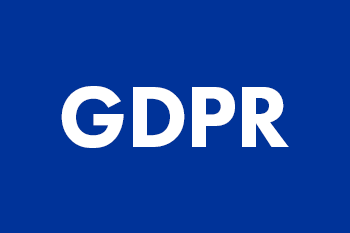On 31st May 2024 the Financial Conduct Authority’s (FCA) new Anti-Greenwashing rules came into force, part of a package of measures finalised under the Sustainability Disclosure Requirements (SDR). This is a landmark moment in the fight back against the misleading or false claims made by companies about their environmental impact.
These rules, some of the most far-reaching ever seen in the financial services sector, are just part of an ESG regulatory and legislative landscape that is evolving at pace.
Like the FCA, the Competition & Markets Authority (CMA) is also upping the ante on its scrutiny of the consumer aspects of greenwashing. Now that the Digital Markets, Competition and Consumers Act has passed into law as part of the pre-election washup, the CMA’s powers have increased, such that it now has the ability to impose significant monetary penalties (as much as 10% of a company’s worldwide annual turnover).
As a result of regulatory scrutiny tightening, ESG-related disclosure obligations increasing and mounting pressure from consumers and other environmental and socially-minded stakeholders, we’re seeing companies saying more about their ESG credentials, performance and impact. As a result, claims against them for greenwashing are growing exponentially.
In this blog I’ll examine what greenwashing is, what the consequences are for businesses in the UK, and how to reduce the risk to your business.
What is Greenwashing?
There are several definitions of greenwashing, but an all-encompassing summary would be “the creation of a misleading or false impression as to the environmental impact of an organisation’s brand, products or services.”
It’s a hot topic right now, because environmental issues are increasingly seen as a critical part of corporate strategy for companies of all sizes, as a result of the UK government’s commitment to achieving net zero by 2050.
Many household names in the UK have fallen foul of greenwashing accusations, including H&M, HSBC, Innocent Smoothies, Persil, Oatly, Decathlon, Zara, Boohoo, ASOS, Unilever and George at Asda.
Globally there have been some hefty fines – the biggest of which so far was issued to Volkswagen, who were ordered to pay $30 billion for emissions fraud. Other large-scale offenders include Toyota, who were issued with a fine of $180 million for violation of emission standards; DWS (part of Deutsche Bank) who received a fine of $125 million for making intentionally misleading statements; Kevig who were ordered to pay £3 million for false claims about the recyclability of its products; and Kohl’s and Walmart, who were given a fine of £15.5 million for violations of the textiles act and false advertising.
So, what are the risks companies need to be aware of?
Greenwashing risks for UK businesses
As mentioned, there is increasing pressure on companies of all sizes to disclose the environmental and social impacts of their business and operations. But it’s vital these claims are verifiable and accurate. Risks can arise from several activities including sales and marketing, supply chain relationships, business transactions (B2B and B2C), and corporate reporting and disclosure obligations.
The implications of getting it wrong include lasting reputational damage, and therefore loss of business and increase customer churn, as well as regulatory and legal action and associated financial penalties.
- Regulatory Risks
On the regulatory front, in addition to those mentioned above, companies can fall foul of several regimes including the Consumer Duty, Consumer Rights Act, Sale of Goods Act, Consumer Credit Act,Consumer Protection from Unfair Trading, Business Protection from Misleading Marketing, and The Green Claims Code. On top of this, there is a raft of EU and international regulations and compulsory reporting requirements, depending on the jurisdictions they operate in.
- Legal Risks
A company can be held liable for misrepresentation if it makes a false statement that induces a consumer or company to conduct business, and they suffer a loss as a result. Misrepresentation can be fraudulent, negligent or innocent. Company directors can also be held liable for compensation for financial loss as a result of greenwashing activities, and claims can also be made against them for breach of duties [Kelly: is this breach of directors duties?].
The new rules require that ESG statements made by companies must be:
- Correct and capable of being substantiated
- Clear and presented in a way that can be understood
- Complete, and should not omit or hide important information
- Considerate of the impact across the full lifecycle of a product or service
- Fair and meaningful in relation to any comparisons with other products or services
So how can companies and directors protect themselves?
How to reduce the greenwashing risk
With such a clear trend toward enforcement action, we advise a 5-step approach to avoiding greenwashing risks:
- Put in place strong, best-practice governance procedures that cover all aspects of your operation, products and services
- Collect data in relation to your environmental and social impacts
- Never make vague or broad claims, and instead ensure all reporting is clear, consistent and verifiable (take a read of our Greenhouse Gas (GHG) protocol briefing note for more detailed reporting advice)
- Seek relevant third-party endorsements and certifications, such as Fairtrade and FSC
- Speak to Leverets.
Our understanding of the integral nature of ESG issues for your business and its future success can add significant value, keeping you in line with legislative and disclosure requirements and protecting you from the damaging risks associated with greenwashing.








